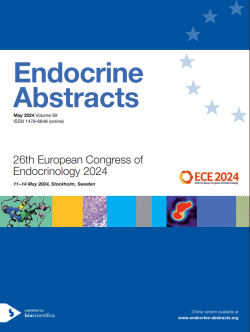Searchable abstracts of presentations at key conferences in endocrinology

26th European Congress of Endocrinology
Stockholm,
Sweden
11 May 2024 - 14 May 2024

We are pleased to announce that ECE 2024 will be held in Stockholm, Sweden from 11-14 May 2024.
We will, once again, be offering the hybrid format next year so you can join us in person in Sweden or remotely with ECE@Home.



